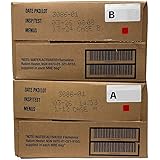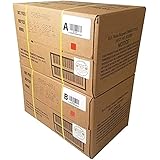Understanding the Importance of an Emergency Plan
Why Every Family Needs One
Let’s kick things off by getting real about why every family should have an emergency plan. Life can throw curveballs at us, whether it’s a natural disaster, a health emergency, or any kind of unexpected crisis. I remember the first time I experienced a blackout during a storm—I felt so unprepared! It’s a pretty scary feeling, and having a plan can help ease that anxiety. Knowing what steps to take can really empower you and your loved ones.
Moreover, having a solid plan can save lives. When you’re panicking in a crisis, it’s easy to forget important steps or instructions. A clear, well-thought-out emergency plan means you and your family will know exactly what to do, whether it’s evacuating, contacting emergency services, or taking care of each other’s needs.
Lastly, it builds resilience. Family preparedness doesn’t just help for acute incidents; it helps us as individuals handle pressure better. Putting together an emergency plan can actually be a bonding experience for your family, fostering teamwork and togetherness.
Assessing Your Family’s Unique Risks
Identifying Local Hazards
One of the first things I did when creating my own emergency plan was assess the risks specific to my area. Each region has its own set of hazards, whether it’s floods, earthquakes, hurricanes, or even civil disturbances. By sitting down and really thinking about these risks, I felt more informed and prepared. It’s like playing a video game—you’ve got to know what monsters are out there!
Once I mapped out potential hazards, I then looked into historical data. For instance, has my town faced significant floods in the past? How about earthquakes? Resources like local government websites or the Red Cross can offer insightful data. It’s all about understanding what could happen so you can strategize effectively.
Lastly, don’t overlook the various vulnerabilities within your family. If you’ve got little ones, elderly parents, or someone with a medical condition, those factors need to be part of your risk assessment. The whole point of creating an emergency plan is to cater to everyone’s needs, and that’s something that cannot be ignored.
Creating a Family Communication Plan
Establishing Emergency Contacts
Next, let’s talk about communication. I can’t stress enough how essential it is to set up an emergency contact list. You might think everyone has their phones on them at all times, but let me tell you, during a crisis, things get chaotic. Bad service, dead batteries—having an off-grid way to reach each other is a must.
Start by designating a primary contact outside of your household. In my case, my aunt a few towns over was super happy to serve as my family’s contact in case of emergencies. This person should know who to reach out to and how to gather information from various family members. And trust me, it’s nice to have someone calm and collected in the mix!
== > What if ... Get a FREE Subscription to PREPARE
When it’s time to practice this, have your family discuss how to stay connected if you get separated. I gathered my family and we put together a gentle plan. It was eye-opening to see where everyone’s heads were at, not just mine. It made the whole plan feel more inclusive, and I felt a lot more secure knowing every detail was covered.
Building Your Emergency Kit
Essentials to Include
No emergency plan is complete without a solid emergency kit. This is where the fun and creativity come into play. First off, I made sure to include the bare essentials: water, non-perishable food, a flashlight, and a first aid kit. It’s simple, but I can’t stress enough how important these items are to have on hand.
Get Preparedness and Self-Reliance Tips. Subscribe Now!
I also took it up a notch by personalizing my kit. I threw in some comfort items like playing cards, a small book, and even my portable charger. It might seem trivial at first, but during an emergency, those little comforts can uplift spirits and keep morale high.
Lastly, I made sure to review and replenish my kit regularly. Food can expire, batteries can die, and life changes—maybe there are new medications in the mix. Staying on top of your emergency kit means you’re always prepared, and that gives you peace of mind.
Regularly Reviewing and Practicing Your Plan
The Importance of Drills
Okay, here’s where the rubber meets the road. After creating your plan and prepping your kit, it’s time to sit down and actually practice it. I can’t tell you how many times I’ve found holes in my plans when we went through them. It’s a learning experience, and believe me, it only gets easier!
In my household, we schedule regular drills—think of it as an emergency pep rally! Whether it’s practicing fire drills or evacuation routes, these sessions bring logistics to life. It’s fun but also super practical. You can feel the difference in everyone’s response; it makes us all feel more ready.
Lastly, don’t forget to encourage feedback. I want to know how my family feels about the drills, what works and what doesn’t. This practice creates a culture of safety, and that’s something I’m proud of. We’re all about keeping communication open, and it helps every person involved feel supported.
FAQ
1. Why is an emergency plan necessary?
An emergency plan is crucial because it prepares families for crises, helps them react quickly, and ultimately can save lives. It builds confidence and clarity in chaotic situations.
2. How do I assess the risks my family might face?
Start by identifying local hazards, looking into historical incidents, and considering your family’s unique vulnerabilities. It involves some research and honest discussions about potential emergencies.
3. What should I include in my emergency kit?
Your emergency kit should contain essentials like water, non-perishable food, a flashlight, a first aid kit, and personal items for comfort. Regularly review and replenish it to keep everything up to date.
4. How often should we practice our emergency plan?
I recommend practicing your emergency plan at least twice a year, or more frequently if possible. Consistent drills keep everyone sharp and reduce panic during real emergencies.
5. Can creating an emergency plan be a family activity?
Absolutely! Involving the whole family in creating the plan can turn it into a bonding experience. It encourages teamwork and ensures everyone knows what’s expected in an emergency.






